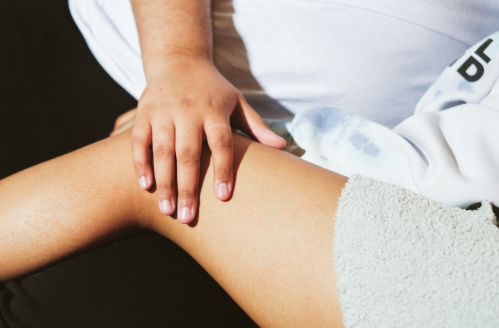If you’ve ever had sex with someone new (or you had sex after not having it for a while) and experienced the telltale tingle after you pee, you might wonder urinary tract infections (UTIs) are contagious? Well, have no fear. You’re not the only one. Many people think you can catch a UTI, but they aren’t sexually transmitted infections. So, to explain the relationship between sex and UTIs, we asked Aleece Fosnight, MSPAS PA-C, CSC-S, founder of the Fosnight Center for Sexual Health and medical advisor of Aeroflow Urology, for specifics about UTIs.
Experts in This Article
urology and women’s health specialist at Aeroflow Urology
UTIs are unequivocally not contagious, says Fosnight. They are bacterial infections in the urethra. While bacteria that cause UTIs can travel from one person to another, the condition itself is not contagious.
E. coli is the most common UTI-causing bacteria, according to the Mayo Clinic. It naturally hangs out in your intestines and around the anus, Fosnight says. Wiping improperly can transfer E. coli into the urethral opening and cause UTIs—and so can sexual activity.
Klebsiella pneumoniae—another common UTI culprit—thrives in moist conditions, like when people wear wet bathing suits, pads, and diapers for prolonged periods. Changing the undergarments and reducing exposure to moist environments is an excellent way to prevent that. (And, though less common, Proteus mirabilis are bacteria that arise from improper kidney function and causes UTIs, Fosnight says.)
So, even though UTIs aren’t contagious, there are aspects of your sex life that can increase your risk for infection. Below, Fosnight lays out some reasons so that you can make adjustments to prevent future contraction.
Mechanics can increase UTI risk
Fosnight recommends that you consider the order of events when you’re having sex. For instance, anal stimulation should happen after any activity involving the urethra. And, when using gloves, condoms, or dental dams, you should switch them when moving between those areas.
Additionally, all penetrative sex toys need to be body-safe silicone so they don’t harbor bacteria in microscopic cracks on the surface. They should also be cleaned and sanitized between uses and partners, Fosnight says. She also says that people with vaginas should pee after sex to flush bacteria out of the urethra.
Don’t just keep these practices in place when you’re having partnered sex, though. If you’ve ever wondered can you get a UTI from masturbating, the answer is yes—be sure all these sexual hygiene practices are kept up even during solo play.
Hygiene is important
“If you haven’t showered in a few days or worked out, you might want to shower and cleanse the genital area to reduce the instance of bacteria during sex,” says Fosnight. She also adds that it is possible that whatever you’re being penetrated or stimulated with during sex could have UTI-causing bacteria on it. They should all be cleaned, whether a penis, dildo, hand, or vibrator.
Additionally, people with uncircumcised penises are slightly more likely to have additional bacteria on or around their foreskin and require different hygiene measures than people without foreskin.
Avoid inflammation-causing factors, too
Additionally, frequency is a huge factor in getting a UTI after having sex with someone new. So, if you’re suddenly having a lot of sex, especially rough sex, after a period of abstinence—this can increase your risk for a UTI, Fosnight says. Your microbiome often needs time to restore good bacteria after being disrupted from sex. If you’re having a lot more sex than usual, you might be moving more bacteria towards your urethra, and your body might not have the time to fight it effectively.
In the same vein, inflammation or friction in the vagina can also result in tiny microscopic micro-tears, Fosnight says. These small tears in the skin can harbor bacteria and make it harder for the body to eradicate them.
Lubes containing fragrances, sugar, glycerin, or parabens can also cause vaginal inflammation, promoting the growth of UTI-causing bacteria, Fosnight says.
All in all, there are many ways that sneaky bacteria can make their way to your urethra, but it doesn’t travel from person to person. If you’re getting a lot of UTIs lately but feel like you do everything right, Fosnight recommends reaching out to your provider.
Sign Up for Our Daily Newsletter
Get all the latest in wellness, trends, food, fitness, beauty, and more delivered right to your inbox.
Got it, you've been added to our email list.











